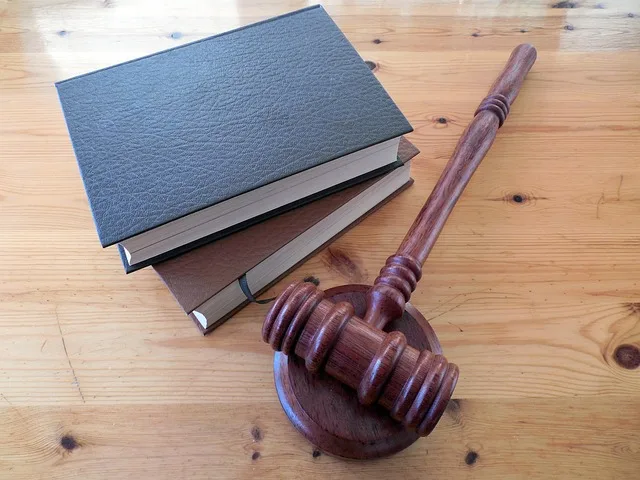Have you ever thought a single tweet or social media post could land you in court?
In the UAE, this is a real possibility. As digital communication becomes more dominant, defamation laws have adapted to protect individuals from online harm.
The introduction and enforcement of the UAE Cybercrime Law have significantly strengthened how defamation laws in Dubai are applied in both online and offline settings.
This article will explain how cybercrime regulations impact laws of defamation, how they’re enforced, and what individuals should know to avoid legal trouble in today’s digital age.
Understanding Defamation Under UAE Law
To begin, it’s essential to answer the question: What are defamation laws?
In simple terms, defamation occurs when someone makes a false statement that harms the reputation of another person. In many jurisdictions, including the UAE, defamation can take place in spoken (slander) or written (libel) form.
In Dubai, defamation is a criminal offense, not just a civil one, and the consequences can include fines, imprisonment, and deportation in severe cases.
The defamation laws in the UAE are based on Articles 372 and 373 of the UAE Penal Code, which criminalize statements that dishonor or insult another person, either publicly or privately. The law is strict and places a strong emphasis on protecting the dignity and privacy of individuals.
How UAE Cybercrime Law Comes Into Play
While defamation laws existed long before the internet, the rise of social media platforms like Instagram, WhatsApp, Twitter, and Facebook has created new ways for reputations to be damaged, and much faster.
To address this, the UAE introduced Federal Decree Law No. 34 of 2021 on Combating Rumors and Cybercrimes, commonly known as the Cybercrime Law. This law significantly amplifies the scope and enforcement of traditional defamation laws.
Now, if a defamatory statement is made online, whether it’s a Facebook post, a tweet, a WhatsApp message, or even a shared meme, it falls under cybercrime. This makes the act more serious and subject to harsher penalties.
Online Defamation: What Counts?
In the UAE, even sharing a post or comment made by someone else can be considered participation in defamation. It doesn’t matter whether you wrote the content or not. If the statement is false and damages someone’s reputation, it could lead to a defamation case.
Common online behaviors that could lead to defamation case laws being applied include posting false allegations about a person or company and sharing screenshots of private conversations with negative context.
It also includes commenting bad words or accusations on public forums or social media. People often think online statements are “casual” or “personal opinion,” but under the defamation laws in the UAE, these can have legal consequences, especially when intent to harm can be proven.
If you are caught under fire, you have to hire the best criminal lawyers in Dubai to save you.
Penalties for Online Defamation in Dubai
Violating defamation laws under the Cybercrime Law carries much tougher penalties than traditional defamation. If convicted, the offender can face fines up to AED 500,000, imprisonment for up to two years, and deportation (for expatriates).
The court may also order the deletion of defamatory content and block access to the account or website used. These penalties show that the UAE treats cyber defamation as a serious offense.
In contrast to many countries where defamation is treated as a civil issue resulting in damages or fines, Dubai’s criminal approach to laws of defamation underlines the importance placed on reputation and public honor in the country.
Where are UAE Laws Headed?
UAE laws continue to evolve across various sectors, including technology, privacy, media, and finance, to offer stronger legal protection and accountability. Just as defamation laws have been reinforced under the Cybercrime Law, other areas of legislation have also seen recent updates.
For example, businesses struggling with financial obligations can now benefit from improved protections and restructuring options introduced under the latest reforms in UAE bankruptcy law.
How to Protect Yourself Under UAE Defamation Laws

Given the strength of the Cybercrime Law, individuals living in Dubai and across the UAE need to be extra mindful of their online activity. Even a quick comment or share can escalate into a serious defamation case under UAE law.
To avoid unintentionally violating the defamation laws in the UAE, it’s important to follow some key guidelines when communicating on digital platforms.
Below are practical ways to stay protected and ensure your online behavior remains within legal boundaries.
Avoid Posting or Sharing Negative Content Without Verified Proof
One of the fastest ways to trigger a defamation case is by making negative claims without solid evidence. Whether it’s about a business, coworker, landlord, & even a company providing poor service, statements made online can be treated as defamatory if they harm someone’s reputation.
The laws of defamation in the UAE are strict, and even forwarding or resharing a false claim could make you legally responsible. Before posting anything critical, ask yourself: Is this true? Can I prove it? Is it necessary to share publicly?
If you’re unsure, it’s better to stay silent than risk a defamation complaint or court case.
Keep Personal Opinions Private and Respectful
While freedom of speech is respected in the UAE, it comes with limitations, especially when it may damage someone’s public image or dignity.
Personal opinions that involve harsh criticism, sarcasm, or emotional outbursts can easily be misunderstood and seen as defamation, especially on social platforms.
Statements like “This doctor is a fraud” or “Avoid this company, they steal your money” may feel like honest feedback, but under UAE defamation laws, they could be treated as serious accusations.
If you must express dissatisfaction, do so privately and respectfully, or better yet, use official complaint channels rather than social media.
Think Before You Comment, Share, or Repost Content
In the age of viral content, it’s easy to click “share” without considering the consequences. However, under defamation laws in the UAE, reposting defamatory or insulting content can make you legally liable, even if you weren’t the original author.
This includes memes, screenshots, and jokes. A seemingly humorous post can offend or damage someone’s reputation when taken out of context. Online tone is easily misread, and what seems like harmless fun can lead to a defamation case if someone decides to take legal action.
Before hitting “comment” or “share,” ask yourself whether the content is respectful, accurate, and necessary. If the answer is no, avoid posting altogether.
Never Publish or Share Private Conversations Without Consent
Another common mistake that results in tenant and landlord disputes, workplace issues, or personal conflicts is the sharing of private messages.
In the UAE, recording or publishing someone’s private conversation, whether through chat, voice message, or email, without their consent is a direct violation of cybercrime and defamation laws.
Even if the message seems to support your argument, publishing it without permission can land you in legal trouble. The courts take privacy violations seriously, especially when the shared content portrays someone negatively or is used to publicly shame or expose them.
If you’re involved in a dispute and feel the need to use private communication as evidence, the appropriate way is through legal channels, not social media.
When in doubt, avoid publishing the content or seek advice from legal experts who understand defamation case laws in the UAE.
When to Seek Legal Advice
If you believe you’ve been defamed online or are accused of defamation, it’s important to consult with a qualified lawyer as soon as possible.
A defamation lawyer in Dubai can help determine whether your case meets the legal criteria for prosecution and assist with filing a complaint or defense.
Likewise, if you’re concerned about something you’ve said, posted, or shared, getting legal advice early can help you avoid prosecution or negotiate resolution with the other party.
Conclusion
The UAE’s Cybercrime Law has drastically increased the enforcement power of existing defamation laws, especially in Dubai where digital platforms are widely used.
While these laws protect individuals from false and damaging statements, they also serve as a warning to be cautious and respectful in all forms of communication, especially online.
If you’re facing a defamation issue or want legal advice regarding online statements, consider contacting Ayesha Aljaziri Lawyers & Legal Consultants. Our team is experienced in handling defamation case laws and other cyber-related legal matters.
You can reach us at +971 5594 83605 or by email at info@aljaziriadvocates.com for confidential legal support.
Frequently Asked Questions
Is it illegal to criticize someone publicly in Dubai?
Can I file a defamation case if someone insults me on WhatsApp?
What’s the difference between defamation and insult under UAE law?
How long do I have to file a defamation case in Dubai?
Can I delete a post and avoid legal trouble?
Deleting a defamatory post doesn’t shield you from legal action in the UAE. If screenshots exist or it’s reported, you can still face consequences based on the harm already caused.








